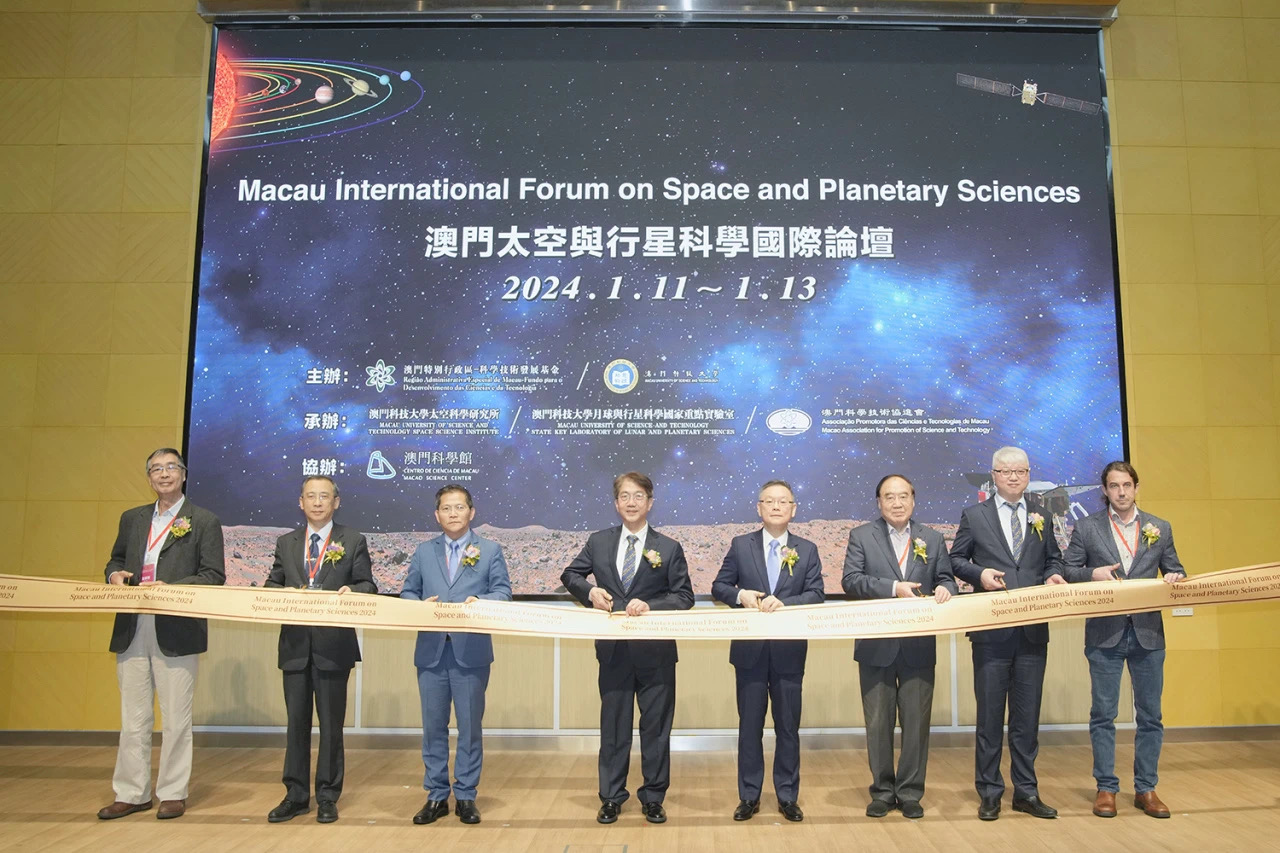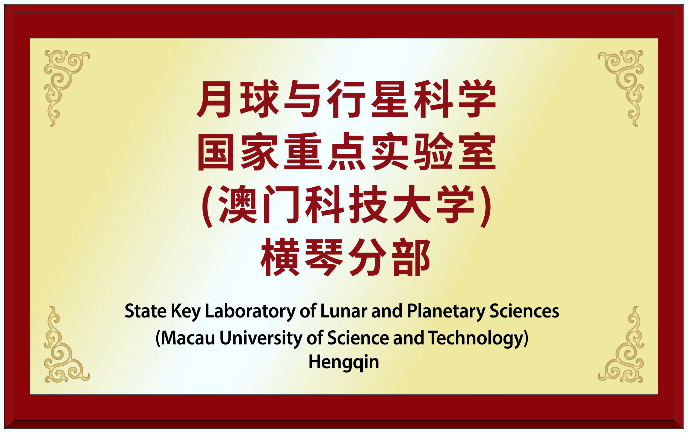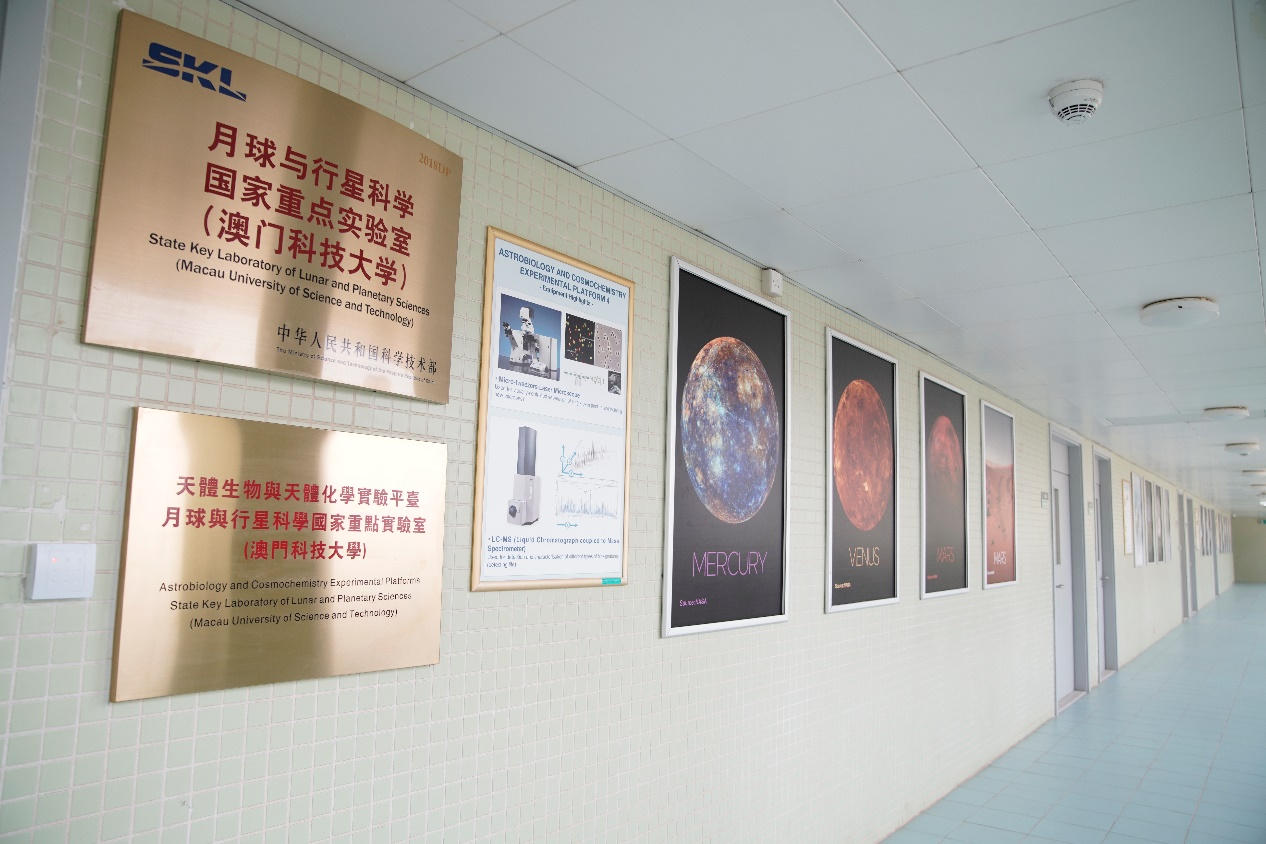
The Ministry of Science and Technology of China approved the establishment of the State Key Laboratory of Lunar and Planetary Sciences (hereafter referred to as SKLplanets) on October 8th, 2018, based at the Macau University of Science and Technology (MUST). It represents the first State Key Laboratory specialising in the field of astronomy and planetary sciences in China.
The SKLplanets predecessor was the Co-Laboratory of Key Laboratory of Lunar and Deep Space Exploration, Chinese Academy of Sciences (CAS), which represented the first overseas partner laboratory.

MUST started to participate in China Lunar Exploration Project in 2005, involving data analysis and scientific research, and the Space Science Institute was built up at the end of 2011. On December 12th of 2019, the China National Space Administration (CNSA) agreed to set up "The Macau Center for Space Exploration and Space Science, China National Space Administration". This centre serves as a scientific support platform in the field of space exploration and space science, an exchange centre for international scientific and technological cooperation, and a training facility for scientific and technological talents. The lab is becoming an important platform for CNSA in the Guangdong-Hong Kong-Macau Greater Bay Area and aiming at the development of Macao's space industry.
There are more than one hundred researchers and postgraduate students at SKLplanets, including 27 researchers with assistant professor's titles or above. This research team covers a wide range of skills and expertise, from the geological to the physical sciences. There are eight research groups within SKLplanets: Planetary Magnetism and Macau Scientific Satellites, Astrobiology, Exoplanets and Planetary Atmospheres, Planetary Geology, Astrochemistry, Planetary Space Sciences, Planetary Environment and Small Bodies in Solar System, Planetary Interior Physics and Chemistry. Currently, there are four research centres: Experimental Platform for Astrochemistry, Experimental Platform for Astrobiology, Satellite Data Analysis Center, and Supercomputing Center.
Currently, SKLplanets have been acting jointly with many national and overseas institutes to develop and launch Macao's first scientific satellite: this will become the world's first and only scientific exploration satellite so date to be placed in a near-equatorial orbit to monitor the geomagnetic field and space environment of the near-equator South Atlantic Anomaly.








